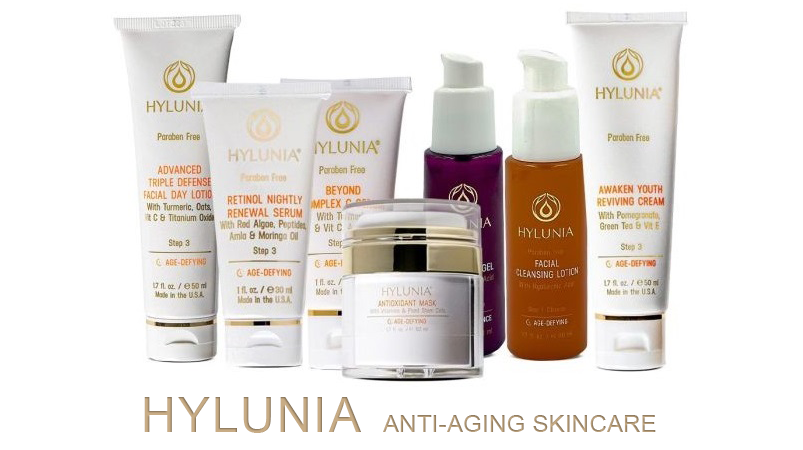
When it comes to building a skincare routine that keeps skin firm, smooth, and vibrant, not all ingredients are created equal. Some are the all-stars of anti-aging—known for their ability to smooth wrinkles, boost hydration, and add that healthy glow. If you’re looking to give your skin the best possible care, here are the ingredients dermatologists recommend for an effective anti-aging regimen.
Contents
- Retinoids: The Gold Standard for Smoothing Wrinkles
- Vitamin C: The Brightening Antioxidant
- Hyaluronic Acid: The Ultimate Hydrator
- Peptides: The Building Blocks of Skin
- Niacinamide: The Multi-Tasking Vitamin B3
- Alpha Hydroxy Acids (AHAs): The Gentle Exfoliators
- Ceramides: The Skin Barrier’s Best Friend
- Putting It All Together for an Anti-Aging Routine
Retinoids: The Gold Standard for Smoothing Wrinkles
If there’s one ingredient dermatologists swear by for anti-aging, it’s retinoids. Derived from vitamin A, retinoids work by accelerating cell turnover, which means they help skin shed old cells and reveal fresh, new ones underneath. This process smooths fine lines, evens out skin tone, and gives skin a firmer look.
Retinol vs. Prescription Retinoids
Retinol is a milder form of retinoid and is available over the counter. It’s a great starting point if you’re new to retinoids. Prescription-strength retinoids, like tretinoin, are more potent and deliver faster results but can cause more irritation. Talk to a dermatologist to find the best option for your skin type and tolerance.
How to Use Retinoids Effectively
Start with a pea-sized amount applied a few nights a week to allow your skin to adjust. If irritation occurs, use it less frequently and pair it with a gentle moisturizer. Remember to use retinoids at night, as they can make your skin more sensitive to the sun. And always, always wear sunscreen during the day.
Vitamin C: The Brightening Antioxidant
Vitamin C is an antioxidant powerhouse that protects your skin from environmental damage while brightening and firming your complexion. It works by neutralizing free radicals—unstable molecules that break down collagen and lead to premature aging. Plus, vitamin C can fade dark spots and give skin an overall glow.
Choosing a Stable Form of Vitamin C
Not all forms of vitamin C are created equal. Look for L-ascorbic acid, the most effective form of vitamin C, or other stabilized forms like sodium ascorbyl phosphate. Vitamin C can be sensitive to light and air, so choose products in opaque, air-tight packaging to keep it potent.
When and How to Apply Vitamin C
Vitamin C is best applied in the morning after cleansing and before sunscreen. This combo protects your skin from UV rays and boosts vitamin C’s effectiveness. Pair it with a moisturizer to lock in hydration and keep your skin protected throughout the day.
Hyaluronic Acid: The Ultimate Hydrator
If your skin is feeling dry or starting to look a bit lackluster, hyaluronic acid can be a game-changer. This ingredient attracts and holds water, giving your skin a plump, hydrated look. It’s like giving your skin a big drink of water, making it especially useful for mature or dry skin.
How Hyaluronic Acid Works
Hyaluronic acid is a humectant, meaning it draws moisture from the environment into the skin. This keeps your skin hydrated, which helps smooth fine lines and makes your skin look fresher and firmer. And don’t worry about the “acid” part—hyaluronic acid is gentle and suitable for all skin types.
Using Hyaluronic Acid in Your Routine
Apply hyaluronic acid to slightly damp skin to boost its moisture-binding abilities. Follow up with a moisturizer to lock in that hydration. Hyaluronic acid can be used morning and night, making it an easy addition to any anti-aging regimen.
Peptides: The Building Blocks of Skin
Peptides are chains of amino acids, which are the building blocks of proteins like collagen and elastin. When applied to the skin, peptides help stimulate collagen production, which keeps skin firm and smooth. They’re like little messengers that tell your skin to look its best.
Why Peptides Are Important for Aging Skin
As we age, our skin produces less collagen, which leads to sagging and wrinkles. Peptides help support your skin’s structure, making it look firmer and more youthful. They’re also gentle, so they’re a good option if you have sensitive skin that can’t handle retinoids.
Best Products with Peptides
Look for serums or moisturizers with peptides, as these products stay on the skin and give peptides time to work. Peptides pair well with other anti-aging ingredients like hyaluronic acid and antioxidants, making them a versatile addition to any routine.
Niacinamide: The Multi-Tasking Vitamin B3
Niacinamide is a form of vitamin B3, and it’s a true multitasker in the skincare world. It reduces inflammation, evens out skin tone, minimizes the appearance of pores, and strengthens the skin barrier. For mature skin, this means fewer dark spots, less redness, and a more even complexion.
Why Niacinamide Works for Anti-Aging
Niacinamide is gentle yet effective, making it suitable for all skin types. It helps build keratin, a protein that keeps your skin firm, and it improves moisture retention. By strengthening the skin barrier, niacinamide also helps your skin stay hydrated, which is essential for smooth, plump skin.
How to Incorporate Niacinamide
Niacinamide can be used morning and night, and it layers well with most other skincare ingredients. Look for niacinamide in serums or moisturizers, and apply it after cleansing for best results. It’s especially helpful if you’re dealing with redness or uneven skin tone.
Alpha Hydroxy Acids (AHAs): The Gentle Exfoliators
AHAs, like glycolic acid and lactic acid, are gentle exfoliants that help remove dead skin cells and reveal fresher, brighter skin underneath. For aging skin, AHAs can improve texture, fade dark spots, and encourage cell turnover, giving you a smoother, more radiant complexion.
Why Exfoliation Is Important for Aging Skin
As we age, our skin’s natural exfoliation process slows down, which can make skin look dull and uneven. AHAs help speed up this process, making your skin look fresher and feel smoother. Plus, by removing dead skin cells, AHAs help other products penetrate more effectively.
Using AHAs Safely
Start with a lower concentration of AHA and gradually increase as your skin builds tolerance. Use AHAs at night, as they can make your skin more sensitive to the sun. And always follow up with sunscreen during the day to protect your fresh, new skin from UV damage.
Ceramides: The Skin Barrier’s Best Friend
Ceramides are lipids, or fats, that naturally occur in the skin. They’re essential for maintaining a strong skin barrier, which keeps moisture in and irritants out. With age, our skin’s ceramide levels drop, leading to dryness and sensitivity. Adding ceramides back in can help your skin stay hydrated and protected.
How Ceramides Benefit Aging Skin
A strong skin barrier is crucial for mature skin, as it helps prevent moisture loss and keeps your skin looking plump and healthy. Ceramides work by filling in the gaps between skin cells, sealing in hydration and keeping out irritants. They’re especially helpful in colder months or for those with naturally dry skin.
Finding Products with Ceramides
Ceramides are commonly found in moisturizers and creams, which allow them to sit on the skin and support the barrier. Look for ceramide-rich formulas in your night cream or daily moisturizer, and apply after your serum to lock in all the good stuff.
Putting It All Together for an Anti-Aging Routine
Now that you know the best anti-aging ingredients, here’s a simple way to put them all together in an effective routine:
- Morning: Cleanse, apply a vitamin C serum, follow with niacinamide if desired, then use a moisturizer with hyaluronic acid, and finish with sunscreen.
- Evening: Cleanse, use a retinoid or AHA (not both on the same night), layer on a peptide or ceramide-rich moisturizer, and top with a hydrating cream if needed.
Building an anti-aging regimen doesn’t have to be complicated. By focusing on these powerful ingredients, you can support your skin’s natural resilience, keeping it firm, smooth, and radiant for years to come.

